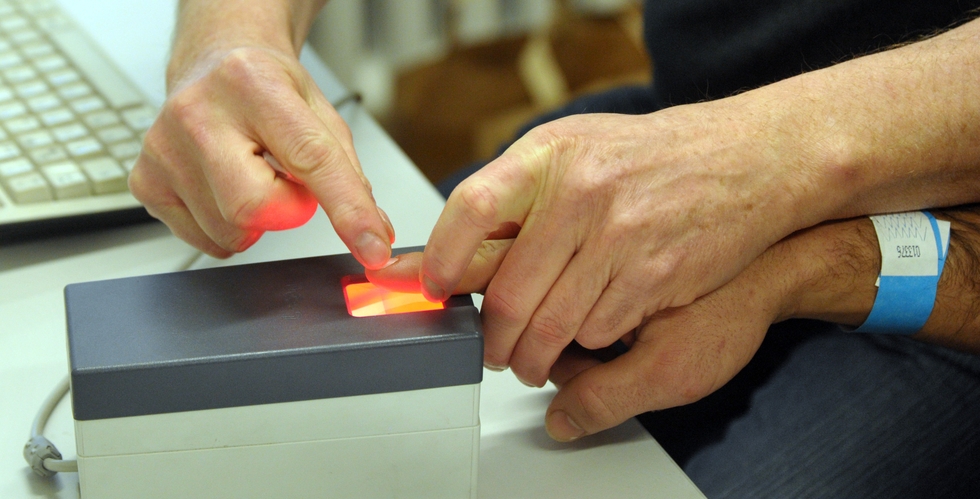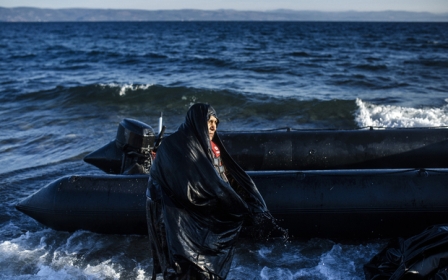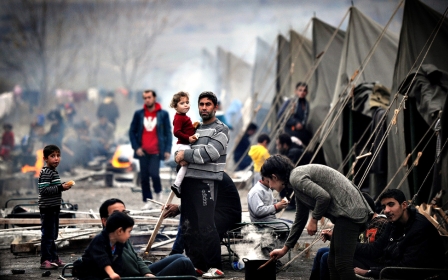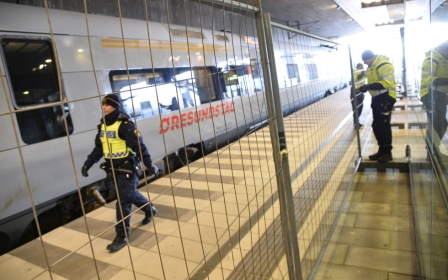Germany unveils measures to curb refugee numbers

Germany on Friday said it would implement new measures to stem the influx of refugees and migrants from North African countries, amid rising tensions across Europe caused by the refugee crisis.
Sigmar Gabriel, the German vice chancellor, announced that the country would place Algeria, Morocco and Tunisia on a list of “safe countries of origin” limiting the likelihood of success for potential refugee applications.
He added that a waiting period of two years would also be introduced when reuniting a refugee with family members who "are not being personally, urgently persecuted".
A poll released on Friday suggested that 40 percent of German would like Chancellor Angela Merkel to resign over her "open doors" refugee policy, which saw more than one million people make their way to Germany in 2015.
The Insa poll for Focus magazine, which surveyed 2,047 people, also said 45 percent believed she should not resign over the policy.
Part of the backlash stems from a series of sexual assaults that took place over the New Year that right-wing political commentators blamed on uncontrolled immigration.
On Friday morning it was reported that a grenade was thrown in a refugee camp in Villingen, south of Stuttgart.
The device failed to go off though around 20 residents were evacuated.
Other European countries have also attempted to put the brakes on the influx of refugees.
Finland joined Sweden on Thursday in announcing plans to deport tens of thousands of refused asylum seekers.
The two Nordic countries are both struggling to cope with an influx of refugees and migrants fleeing misery in the Middle East and elsewhere, and receive amongst the highest numbers of arrivals per capita in the EU.
The Finnish government expects to deport around two thirds of the 32,000 asylum seekers that arrived in 2015, Paivi Nerg, administrative director of the interior ministry, told AFP.
“In principle we speak of about two-thirds, meaning approximately 65 percent of the 32,000 will get a negative decision [on their asylum applications],” she told AFP.
In neighbouring Sweden, Interior Minister Anders Ygeman said on Wednesday that the government was planning over several years to deport up to 80,000 people whose asylum applications are set to be rejected.
“We are talking about 60,000 people, but the number could climb to 80,000,” he told Swedish media, adding that, as in Finland, the operation would require the use of specially chartered aircraft.
He estimated that Sweden would reject about half of the 163,000 asylum requests received in 2015.
Swedish Migration Minister Morgan Johansson said authorities faced a difficult task in deporting such large numbers, but he insisted failed asylum seekers had to return home.
“Otherwise we would basically have free immigration, and we can’t manage that,” he told news agency TT.
Greek 'warehouse' no solution
Forcing Greece to become a "warehouse" for migrants was no solution to the crisis, Human Rights Watch said on Friday, adding that Turkey was not suitable for migrant relocation.
"Greece has its fair share of responsibility for the situation on the ground, but turning the country into a warehouse is no solution to Europe’s refugee crisis," HRW Greece specialist Eva Cosse said in a statement.
The European Union this week said Greece could face border controls with the rest of the passport-free Schengen zone unless it improved security at the bloc's southern frontier.
A Belgian official has also suggested that Greece create camps for hundreds of thousands of refugees and migrants.
An EU report compiled in November said Greece was failing to properly register and fingerprint new arrivals, with security concerns high after reports that Islamic State militants behind the Paris attacks that month had slipped into Europe by posing as refugees.
Athens counters that the procedure has drastically improved in the past two months with the arrival of promised EU staff and registering equipment.
However, the basic needs and rights of thousands of asylum seekers and migrants were still being ignored, HRW said.
New MEE newsletter: Jerusalem Dispatch
Sign up to get the latest insights and analysis on Israel-Palestine, alongside Turkey Unpacked and other MEE newsletters
Middle East Eye delivers independent and unrivalled coverage and analysis of the Middle East, North Africa and beyond. To learn more about republishing this content and the associated fees, please fill out this form. More about MEE can be found here.




